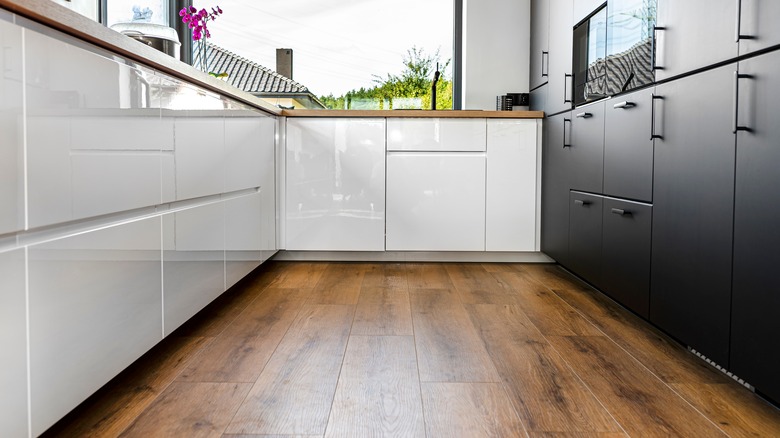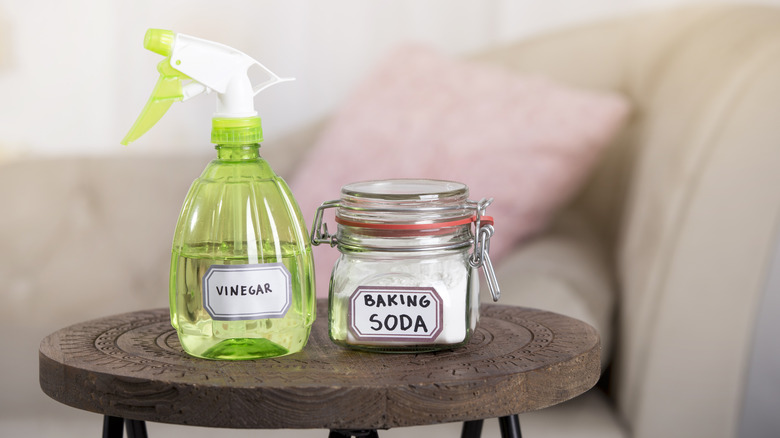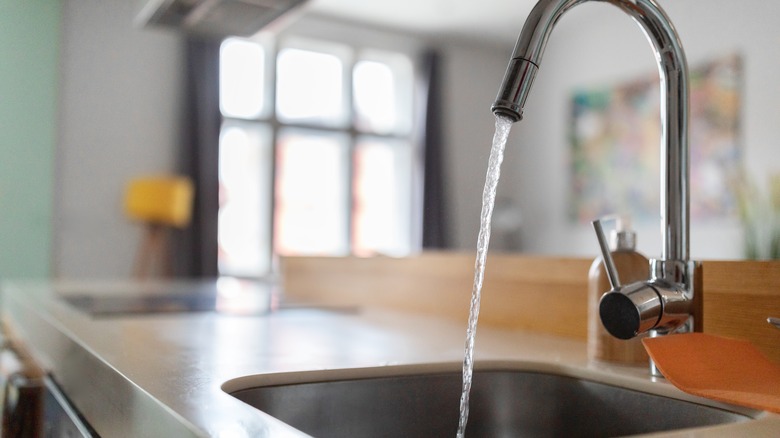How To Safely Remove Rust Stains On Vinyl Floors
Vinyl flooring has some big benefits: It's durable, easy to maintain, and cost-effective. However, like other types of flooring materials, it can get dirty and potentially develop rust stains as time goes on. These rust stains are caused by iron oxidation and can be found underneath appliances or near other metal items, such as nails. Fortunately, getting rid of it isn't too difficult if you know what to do. It's possible to remove rust stains from all types of floors, but it will take a bit of work on your part when it comes to vinyl.
To remove this rust, all you need is some baking soda, vinegar, and a couple of rags at your disposal. Baking soda is abrasive, so placing it on a rust stain can help make it easier to remove. The acetic acid in vinegar can help loosen up the stain and make it easier to scrub away. If you've noticed any rust stains on your vinyl floors, using this simple combination can help you remove them, so get started immediately to ensure your vinyl flooring will last as long as possible and keep looking its best.
Removing a rust stain using baking soda and vinegar
Once you have these, start by spreading baking soda over the stain in a thin layer. Then, add vinegar to a rag and rub it over the vinyl surface. You should be able to remove the rust from the surface with some light scrubbing. Once you've done this, clean the rag by rinsing it out with water. Then, you can repeat the process as many times as needed until you see that the stain is removed. Once you've successfully removed the rust stain, wipe the area again with clean water and then dry it thoroughly using a clean rag.
If you don't have baking soda and vinegar on hand, there are other ways to remove rust as well. A combination of lemon juice and Borax can work well for removing stains, if used in the right quantities. To do this, mix 2 tablespoons of Borax with just a splash of lemon juice. Then, let the mixture sit on the vinyl floor stain for an hour before removing with a dry cloth. Another option is to take rubbing alcohol and then scrub a bit using a soft brush or clean cloth. Then, rinse with water, repeating the process as needed. One more option to consider is using dishwashing liquid. Simply add a few drops of dish soap to a bit of warm water and then wipe away with a soft cloth or sponge. Then, rinse and repeat until the rust is gone.
Taking steps to protect your vinyl floors
While it's fairly easy to get rid of rust stains, it's best to prevent them in the first place to keep your vinyl floors in tip-top shape. It's a good idea to add a finish or treatment to your floor for extra protection. In the case of luxury vinyl tile (LVT), there will already be a protective urethane layer, so adding a finish won't be necessary during installation. However, this layer can wear away over time. When it does, you may want to consider adding a water-based urethane sealer that is specifically made for vinyl flooring. A nano-coating product can also be used to add to the floor's slip resistance.
For a flawless vinyl plank flooring installation, be careful about how you secure it. Vinyl plank flooring tiles are often secured to one another using adhesive, but they don't require adhesive or fasteners to attach to the subfloor. Nails and staples may sometimes be used, but are best avoided when possible. Metal is vulnerable to rusting, so it's best not to use it in and around your vinyl flooring.
It's also very important to keep your vinyl flooring free from moisture and to ensure that no water gets on it. You may want to avoid using your faucet on a higher setting to prevent water from splashing onto it. Additionally, avoid bringing water in from outside to avoid damage — be careful with your shoes or coats after it has been raining.


